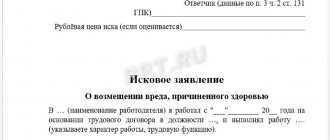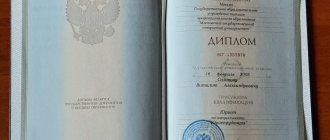Concept and types of guarantees and compensation
In accordance with Article 164 of the Labor Code of the Russian Federation, guarantees are the means, methods and conditions by which the exercise of the rights granted to employees in the field of social and labor relations is ensured.
The guarantees established by law and ensuring the implementation of the rights granted to employees can be both intangible (for example, maintaining a place of work, position, providing another job) and material (preserving average earnings for the period of study leave, annual leave, business trip) in nature.
Guarantee payments and additional payments are often used as guarantees. Guarantee payments are those payments that are made to employees for the time when they actually did not perform their labor duties for valid reasons provided for by law.
As a general rule, they replace the employee’s wages; guaranteed additional payments go on top of wages. Both guarantee payments and additional payments are aimed at preventing a decrease in the employee’s earnings in cases where he is released from performing work duties.
Their difference from wages is that wages are paid as a result of labor, and guarantee payments are not paid for labor, its results, but guarantee payment in cases provided for by law.
All guarantee payments can be classified into types:
Articles on the topic (click to view)
- Do you know what a trademark is and what its meaning is? Definition of concept and types, characteristics and examples
- What to do if your credit history is damaged: how to “rehabilitate” the borrower
- Classification of industrial goods
- What financial guarantee is required for a visa to Italy?
- Fedresurs bankruptcy of individuals
- How does a simplified bankruptcy procedure for a legal entity occur: procedure
- The procedure for dismissing employees in the event of bankruptcy of an enterprise, required compensation and payments
- depending on production or the actions of the manager (payment for downtime due to the fault of the employer, payment for forced absence in the event of illegal dismissal, severance pay upon dismissal);
— ensuring the employee’s right to paid leave (labor, educational, social);
— guaranteed additional payments: to minors for reduced working hours; for certain types of breaks; when transferred to an easier (lower paid) job;
- independent of production, but necessary for the state and society (fulfillment of state duties, participation in collective bargaining, military training, etc.)
Expert opinion
Makarov Igor Tarasovich
Legal consultant with 8 years of experience. Specialization: criminal law. Extensive experience in document examination.
Compensations are monetary payments established to reimburse employees for costs associated with the performance of their labor or other duties provided for by federal law.
Costs incurred by the employee while performing his job duties must be reimbursed to him in the form of cash payments.
In a number of cases, legislation provides for the provision of both guarantees and compensation to the employee, for example, in the case of donating blood and its components.
In addition to reimbursement of expenses incurred by the employee, the law provides for monetary compensation for moral damage caused to the employee (Article 237 of the Labor Code).
A collective or labor agreement may provide for other cases of an employee receiving guaranteed compensation payments in comparison with the law, as well as establish higher amounts of such payments.
Cases of provision of guarantees and compensation. In addition to the general guarantees and compensations provided for by the Labor Code of the Russian Federation (guarantees for hiring, transfer to another job, wages, etc.), employees are provided with guarantees and compensation in the following cases:
- when sent on business trips;
- when moving to work in another area;
- when performing state or public duties;
- in case of forced cessation of work through no fault of the employee;
— when providing annual paid leave;
— in some cases of termination of an employment contract;
- due to a delay due to the employer’s fault in issuing a work book upon dismissal of an employee;
- in other cases provided for by the Labor Code of the Russian Federation and other federal laws.
Thus, combat veterans have the right to free training in new professions at the place of work, in advanced training courses in the system of state training and retraining of personnel, and preservation of wages (in the amount of 100 percent of the tariff rate) at the last place of work during the entire period of training.
Citizens of the Russian Federation who were exposed to radiation as a result of nuclear tests at the Semipalatinsk test site are given an additional payment up to the amount of their previous earnings when transferred for medical reasons to a lower-paid job. This additional payment is carried out by organizations until the ability to work is restored or disability is established.
In cases determined by law, the employer provides employees with:
— guarantees and compensation (for example, when an employee is sent on a business trip, combining work with training, the employee retains his place of work (position) and average earnings for the period of absence of the employee);
- only guarantees (maintaining a job (position) while performing state or public duties). For example, during the period of participation in activities to ensure citizens fulfill their military duty, the employee’s average salary is paid from the funds of the Russian Ministry of Defense.
In a number of cases, the employer provides guarantees, compensation (preservation of the employee’s place of work (position) and average earnings for the period of release from work) and, in addition, the employee receives additional compensation from the federal budget (for example, people's assessors, arbitration assessors) .
When guarantees and compensation are provided, the corresponding payments are made at the expense of the employer. Bodies and organizations in whose interests the employee performs state or public duties (jurors, donors, etc.) make payments to the employee in the manner and under the conditions provided for by the Labor Code, federal laws and other regulatory legal acts of the Russian Federation.
In these cases, the employer releases the employee from his main job for the period of performance of state or public duties.
• Guarantees are the means, methods and conditions by which the implementation of the rights granted to employees in the field of social and labor relations is ensured. Compensations are monetary payments established to reimburse employees for costs associated with the performance of their labor or other duties provided for by federal law.
The responsibility for such payments rests with the employer, and in some cases with those bodies or organizations in whose interests the employee carried out certain actions. In addition to the general guarantees and compensations provided for by the Labor Code of the Russian Federation (guarantees for hiring, transfer to another job, wages, etc.)
d.), employees are provided with guarantees compensation the following cases: • on business trips; moving to work in another area; performance of state or public duties; combining work with training; forced termination of work through no fault of the employee; provision of annual paid leave; %/ in some cases of termination of an employment contract; due to a delay due to the employer’s fault in issuing a work book upon dismissal of an employee;
• in other cases provided for by the Labor Code of the Russian Federation and other federal laws. This list is not exhaustive.
However, the cases of provision of guarantees and compensation included in it are common to all categories of workers. 3 When an employee is sent on a business trip , he is guaranteed to retain his place of work (position) and average earnings, as well as reimbursement of expenses associated with the business trip.
A business trip is a trip by an employee by order of the employer for a certain period of time to carry out an official assignment outside the place of permanent work. Business trips of employees whose permanent work is carried out on the road or is of a traveling nature are not recognized as business trips (Art.
166 Labor Code of the Russian ). When an employee moves , by prior agreement with the employer, to work in another location, the employer is obliged to compensate the employee . expenses for moving the employee, members of his family and transporting property (except for cases where the employer provides the employee with appropriate means of transportation); expenses for settling into a new place of residence. During the performance of state or public duties by an employee in cases where, according to the law, these duties must be performed during working hours, the employer
is obliged to release the employee from work while maintaining his place of work (position). Members of labor dispute commissions (LCC) are given time off from work to participate in the work of the CLC.
At the same time, such workers retain their average earnings. The procedure for dismissal of employees elected to labor dispute commissions is determined by Art.
373 of the Labor Code of the Russian Federation, the main requirement of which is to take into account the opinion of the elected trade union body when deciding on the dismissal of a member of the trade union union. For employees sent for training by the employer or who independently entered educational institutions with state accreditation and successfully study in these institutions, the employer provides additional leave with preservation of average earnings (for passing intermediate certification in the first and second years, for preparing and defending the final qualification work and passing final state exams, etc.
Expert opinion
Makarov Igor Tarasovich
Legal consultant with 8 years of experience. Specialization: criminal law. Extensive experience in document examination.
P.). Guarantees and compensation for employees combining work with study are provided on the condition that they are receiving education at the appropriate level (higher, secondary) for the first time.
According to the general rule established by Art. 178 of the Labor Code of the Russian Federation, upon termination of an employment contract due to the liquidation of the organization or reduction in the number or staff of the organization’s employees (clauses 1, 2 of Art.
81) the dismissed employee is paid severance pay in the amount of average monthly earnings. In addition, he retains the average monthly salary for the period of employment, but not more than 2 months from the date of dismissal (including severance pay).
When the number or staff of an organization's employees is reduced, priority right to remain at work is given to employees with higher labor productivity and qualifications. If labor productivity and qualifications are equal, preference in remaining at work is given to persons in whose family there are no other workers with independent earnings, workers who have received a work injury or occupational disease in a given organization, disabled people, and workers who are improving their qualifications in the direction of the employer without interruption from work. .
When an employee uses personal property with the consent or knowledge of the employer and in his interests, the employee is paid compensation for the use, wear and tear (depreciation) of tools, personal vehicles, equipment and other technical means and materials belonging to the employee, as well as reimbursement of expenses associated with their use. If the employment contract is terminated with the head of the organization, his deputies and the chief accountant due to a change in the owner of the organization, the new owner is obliged to pay compensation to these employees in the amount of not less than 3 average monthly earnings.
Article 164 of the Labor Code of the Russian Federation. The concept of guarantees and compensation (current version)
1. The basic rights and obligations of an employee in the field of social and labor relations are defined in Art. 21 TK.
2. Guarantees established by law and ensuring the implementation of the rights granted to employees can be both intangible (for example, preservation of a place of work, position, provision of another job) and material (preservation of average earnings for the period of study leave, annual leave, business trip) in nature. .
Providing an employee with a vacant position during measures to reduce the number or staff of employees and in other cases is a means of ensuring the internal employment of the employee.
The guarantees established when concluding an employment contract, in particular the opportunity to appeal to the court the refusal to conclude an employment contract, are a way to protect the rights of the employee.
The employee’s exercise of the granted right to rest is ensured under the condition that he retains his place of work (position) and average earnings.
3. The purpose of compensation payments is to reimburse expenses incurred by the employee in connection with the performance of his labor function. Costs incurred by the employee while performing his job duties must be reimbursed to him in the form of cash payments. In a number of cases, legislation provides for the provision of both guarantees and compensation to the employee, for example in the case of donating blood and its components.
In addition to reimbursement of expenses incurred by the employee, the legislation provides for monetary compensation for moral damage caused to the employee (Article 237 of the Labor Code).
4. Federal laws provide for the fulfillment by citizens of state and public duties; for example, according to Art. 25.6 of the Code of Administrative Offenses of the Russian Federation, a witness is obliged to appear when summoned by a judge, body, official who is prosecuting a case of an administrative offense, or on the basis of Part 6 of Art. 56 of the Code of Criminal Procedure of the Russian Federation, a witness does not have the right to evade appearing when summoned by an inquiry officer, investigator, or in court. On guarantees and compensation for employees involved in the performance of state and public duties, see Art. 170 TK.
5. A collective agreement, agreements, local regulations, or employment contract may provide for other cases of an employee receiving guarantee and compensation payments in comparison with the law, and also establish higher amounts of such payments.
Comment source:
Rep. ed. Yu.P. Orlovsky “COMMENTARY ON THE LABOR CODE OF THE RUSSIAN FEDERATION”, 6th edition ACTUALIZATION
ORLOVSKY Y.P., CHIKANOVA L.A., NURTDINOVA A.F., KORSHUNOVA T.YU., SEREGINA L.V., GAVRILINA A.K., BOCHARNIKOVA M.A., VINOGRADOVA Z.D., 2014
Guarantees and compensation in labor law (Article 164 of the Labor Code of the Russian Federation)
Guarantees are a way to ensure that employees exercise their rights in the field of social and labor relations.
Compensations are monetary payments, the purpose of which is to reimburse the employee for the costs that he incurred in the performance of his work duties.
Guarantees and compensation in labor relations are divided into general (when hiring, transferring to another job, for wages, etc.) and special, which are paid in the event of:
- business trip directions;
- moving to another city with an employer;
- performance of state or public duties;
- combining work with training in educational institutions;
- termination of an employment contract through no fault of the employee, etc.
The concept of guarantees and labor rights of an employee
According to the Labor Code of the Russian Federation, guarantees are the means, methods and conditions by which the exercise of the rights granted to employees in the field of social and labor relations is ensured.
The purpose of applying the guarantees established by law is to exercise the rights of employees. Based on this, we can say that guarantees perform a security function in relation to the rights of workers. In labor legislation, guarantees and compensation are divided into: general and special.
General guarantees include:
- when applying for a job;
- when transferring to another job;
- when paying for labor;
- upon termination of an employment contract, etc.
In addition to general guarantees, as mentioned above, employees are provided with special guarantees in the following cases:
- business trip assignments;
- moving to work in another area;
- performance of public or state duties;
- combining training with work;
- termination of work through no fault of the employee;
- termination of work for certain reasons;
- provision of annual paid leave;
- delays in issuing a work book to an employee due to the fault of the employer.
Finished works on a similar topic
- Course work Guarantees for employees within the framework of labor legislation 400 rubles.
- Abstract Guarantees for employees within the framework of labor legislation RUB 270.
- Test work Guarantees for employees within the framework of labor legislation 250 rubles.
Get completed work or advice from a specialist on your educational project Find out the cost
This list of guarantees is not exhaustive, since there is a list of additional guarantees that are established in agreements, collective agreements, employment contracts and local acts of the organization. In Fig. 1 shows the main types of guarantees.
Figure 1. Types of guarantees in labor legislation
The source of financing guarantees and compensation for employees can be either funds from the employer, or funds from bodies and organizations in whose interests the employee performs state or public duties.
Legal regulation of the conditions for providing guarantees and compensation is based on federal laws and regulations. An employee’s labor rights arise after he has entered into an employment contract with the employer.
Need advice on your academic work? Ask a question to the teacher and get an answer in 15 minutes! Ask a Question
The basic rights of an employee are:
- provision of work according to the function specified in the employment contract;
- the right to working conditions that meet established standards;
- the right to receive remuneration for one’s work.
Employee rights are of a property and non-property nature.
Guarantees and compensation to employees in case of delay in issuing a work book or wages
If the deadline for issuing a work book to an employee upon termination of the employment contract is violated, compensation is the average daily salary for each delayed day. In addition, the employee may be entitled to compensation for moral damages.
Guarantees and compensation to employees for delayed wages are established in the form of monetary compensation, which is paid regardless of the employer’s fault.
Before getting a job, my wife was promised official employment. They even took my work book. Nine years after her dismissal, she was given back her clean pay. Accordingly, there have been no deductions all these years!
What admission gives the employee guarantees and compensation?
Please clarify what you mean by permission.
The opportunity to work for money is guaranteed by the Constitution of our country. For this purpose, general and special legislation has been adopted and is in force, guaranteeing equal conditions for the realization of one’s professional opportunities and skills with further receipt for this of remuneration no lower than that established in the state.
Guarantees and compensation in labor law have their own characteristics, which we suggest understanding in more detail.
When are guarantees and compensation provided?
The main cases of providing guarantees and compensation are contained in the Labor Code of the Russian Federation:
- sending an employee on a business trip;
- moving the organization to another location;
- performance by an employee of various duties in the state or public sphere;
- combining study and work;
- termination of work due to the fault of the employer;
- annual leave;
- termination of the employment agreement;
- delay of the manager’s work book after the dismissal of a subordinate;
- in other cases established by law.
In addition, compensation payments may be provided if the employee was transferred to a lower-paid job, if he is temporarily disabled, if the employee lost his health or died due to an accident at work, etc. Most guarantees and compensation are provided only at the expense of the employee himself. employer.
Exceptions are organizations for which the person performed specific duties. For example, if the employee is a juror in court or a donor. In this case, the employer is obliged to release the subordinate from work. In the case of donation, for example, the legislation provides for the payment of both guarantees and compensation.
Author of the article
Moving
Changing jobs with the need to change place of residence is a very common occurrence. And if such a need comes from the desire of the employer (he invited a new employee or the company changed its location), the citizen has some social guarantees:
- providing the employee with a vehicle for moving, or paying compensation for transportation costs;
- compensation for expenses for setting up a new place of residence;
- provision of housing, or compensation for its rental.
It should be noted that such norms must be enshrined in the employment agreement signed by the parties. Additionally, the law provides for the payment of appropriate compensation for the expenses of family members moving with the employee.
If the company's personal transport is used, no monetary compensation is due. It is important to note that if the family decides to move in with the worker not immediately, but after some time (more than a year), the employer may refuse to pay compensation.
Remember, relocation compensation is usually only awarded if the employer himself takes the initiative to find employment in another area. If the employee decides to find a job there on his own, he will be denied such payments.
Basic provisions of Art. 164 TK
The article in question is short in length: it contains only two paragraphs, where the terms “guarantee” and “compensation” are defined.
By guarantee, it means the components with the help of which employees are provided with the rights they are entitled to in the social and labor sphere. These components include the following elements:
- facilities;
- methods;
- conditions.
Compensation means cash payments made to reimburse employees for costs associated with the performance of their labor or other duties prescribed in the Labor Code and the relevant federal legislation.
The considered article, as can be seen from the above definitions, plays a key role in the field of labor legislation terminology, helping to determine the content of the terms “guarantee” and “compensation”. The concepts formulated in it are used in Section VII of the Labor Code, which is dedicated to various aspects of guarantees and compensation for employees.
Upon termination of an employment contract, incl. reduction
The law determines for all categories of citizens, without exception, certain social guarantees upon dismissal from work. Their list included:
- Opportunity to receive full payroll. The employer is obliged to pay all wages due to the worker until the day of dismissal (which is a working day). This payment is made in full on the last day of work.
- Providing required leave or paying monetary compensation. It is also carried out on the last working day of the worker.
- Certified copies of documents on termination of employment relations, pay slips.
- Receiving proposals from the employer with a list of positions for employment in the event of layoffs. Advance notification of layoffs.
- Payment for periods of incapacity for work that began before the day of dismissal and ended after the end of this procedure. This rule applies only in cases where the employee himself took the initiative to quit.
- A ban on the dismissal of employees at the initiative of the administration (downsizing), during periods when they are on sick leave, on business trips, or vacations.
- The opportunity to be reinstated and receive compensation for the entire period of absence if the dismissal was illegal (proven in court).
Remember, the rights provided above apply to employers of all forms of ownership. The main thing is that the employment is official (confirmed by documents).
Guarantees and compensation in the labor sphere: concept, types and cases of their provision
GUARANTEES AND COMPENSATIONS
Article 164. Concept of guarantees and compensation
Guarantees are the means, methods and conditions by which the implementation of the rights granted to employees in the field of social and labor relations is ensured.
Compensations are monetary payments established to reimburse employees for costs associated with the performance of their labor or other duties provided for by this Code and other federal laws.
Article 165. Cases of providing guarantees and compensation
In addition to the general guarantees and compensations provided for by this Code (guarantees for hiring, transfer to another job, wages, etc.), employees are provided with guarantees and compensation in the following cases:
- when sent on business trips;
- when moving to work in another area;
- when performing state or public duties;
— when combining work with training;
- in case of forced cessation of work through no fault of the employee;
— when providing annual paid leave;
— in some cases of termination of an employment contract;
- due to a delay due to the employer’s fault in issuing a work book upon dismissal of an employee;
- in other cases provided for by this Code and other federal laws.
When guarantees and compensation are provided, the corresponding payments are made at the expense of the employer. Bodies and organizations in whose interests the employee performs state or public duties (jurors, donors, members of election commissions and others) make payments to the employee in the manner and on the terms provided for by this Code, other federal laws and other regulatory legal acts of the Russian Federation . In these cases, the employer releases the employee from his main job for the period of performance of state or public duties.
Concept and types of guarantees and compensation
In accordance with Article 164 of the Labor Code of the Russian Federation, guarantees are the means, methods and conditions by which the exercise of the rights granted to employees in the field of social and labor relations is ensured.
The guarantees established by law and ensuring the implementation of the rights granted to employees can be both intangible (for example, maintaining a place of work, position, providing another job) and material (preserving average earnings for the period of study leave, annual leave, business trip) in nature.
Guarantee payments and additional payments are often used as guarantees. Guarantee payments are those payments that are made to employees for the time when they actually did not perform their labor duties for valid reasons provided for by law.
As a general rule, they replace the employee’s wages; guaranteed additional payments go on top of wages. Both guarantee payments and additional payments are aimed at preventing a decrease in the employee’s earnings in cases where he is released from performing work duties. Their difference from wages is that wages are paid as a result of labor, and guarantee payments are not paid for labor, its results, but guarantee payment in cases provided for by law.
All guarantee payments can be classified into types:
- depending on production or the actions of the manager (payment for downtime due to the fault of the employer, payment for forced absence in the event of illegal dismissal, severance pay upon dismissal);
— ensuring the employee’s right to paid leave (labor, educational, social);
— guaranteed additional payments: to minors for reduced working hours; for certain types of breaks; when transferred to an easier (lower paid) job;
- independent of production, but necessary for the state and society (fulfillment of state duties, participation in collective bargaining, military training, etc.)

Compensations are monetary payments established to reimburse employees for costs associated with the performance of their labor or other duties provided for by federal law.
Costs incurred by the employee while performing his job duties must be reimbursed to him in the form of cash payments.
In a number of cases, legislation provides for the provision of both guarantees and compensation to the employee, for example, in the case of donating blood and its components.
In addition to reimbursement of expenses incurred by the employee, the law provides for monetary compensation for moral damage caused to the employee (Article 237 of the Labor Code).
A collective or labor agreement may provide for other cases of an employee receiving guaranteed compensation payments in comparison with the law, as well as establish higher amounts of such payments.
Cases of provision of guarantees and compensation. In addition to the general guarantees and compensations provided for by the Labor Code of the Russian Federation (guarantees for hiring, transfer to another job, wages, etc.), employees are provided with guarantees and compensation in the following cases:
- when sent on business trips;
- when moving to work in another area;
- when performing state or public duties;
— when combining work with training;
- in case of forced cessation of work through no fault of the employee;
— when providing annual paid leave;
— in some cases of termination of an employment contract;
- due to a delay due to the employer’s fault in issuing a work book upon dismissal of an employee;
- in other cases provided for by the Labor Code of the Russian Federation and other federal laws.
Thus, combat veterans have the right to free training in new professions at the place of work, in advanced training courses in the system of state training and retraining of personnel, and preservation of wages (in the amount of 100 percent of the tariff rate) at the last place of work during the entire period of training.
Citizens of the Russian Federation who were exposed to radiation as a result of nuclear tests at the Semipalatinsk test site are given an additional payment up to the amount of their previous earnings when transferred for medical reasons to a lower-paid job. This additional payment is carried out by organizations until the ability to work is restored or disability is established.
In cases determined by law, the employer provides employees with:
— guarantees and compensation (for example, when an employee is sent on a business trip, combining work with training, the employee retains his place of work (position) and average earnings for the period of absence of the employee);
- only guarantees (maintaining a job (position) while performing state or public duties). For example, during the period of participation in activities to ensure citizens fulfill their military duty, the employee’s average salary is paid from the funds of the Russian Ministry of Defense.
In a number of cases, the employer provides guarantees, compensation (preservation of the employee’s place of work (position) and average earnings for the period of release from work) and, in addition, the employee receives additional compensation from the federal budget (for example, people's assessors, arbitration assessors) .
When guarantees and compensation are provided, the corresponding payments are made at the expense of the employer. Bodies and organizations in whose interests the employee performs state or public duties (jurors, donors, etc.) make payments to the employee in the manner and under the conditions provided for by the Labor Code, federal laws and other regulatory legal acts of the Russian Federation. In these cases, the employer releases the employee from his main job for the period of performance of state or public duties.
Types of responsibilities
The state or public organization can involve a citizen in performing certain duties during his working hours. At the same time, the person who fulfills them has the right to count on guarantees and compensation. So, what is included in the concept of public or state duties? First of all this:
- performing the duties of a deputy;
- assistance in the implementation of voting rights;
- participation in the preliminary or prosecutorial investigation as a witness, witness or victim;
- participation as a juror or public defender in court hearings;
- participation in proceedings of social protection authorities as a witness.
There are also other cases when an employee can perform non-work duties during working hours. For example, undergo military training, donate blood, etc. Public responsibilities also include participation in trade union organizations. This type of work requires additional time.






